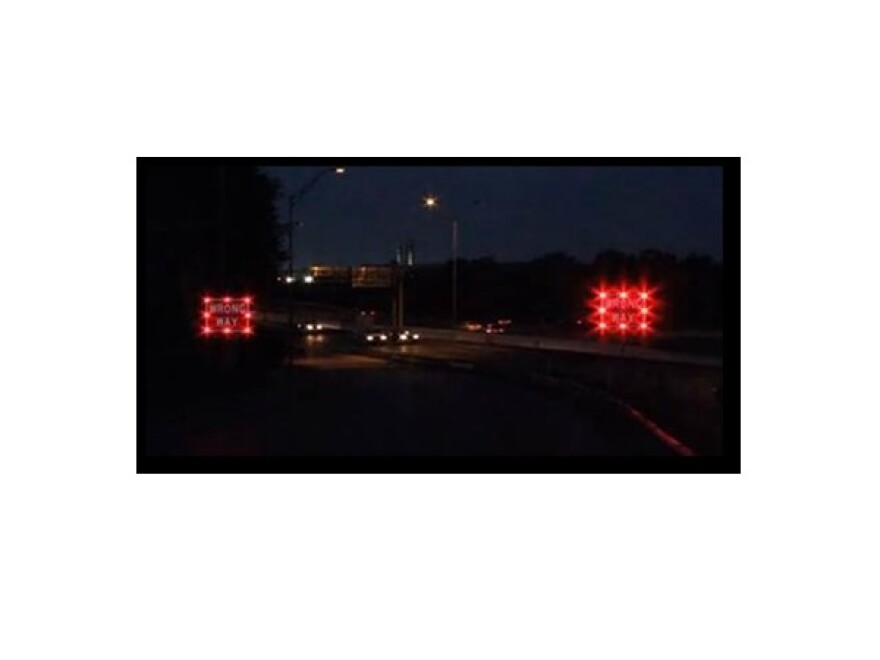Ohio is trying something new in an effort to stop drivers from going the wrong direction on highway exit ramps."These made up .01 percent of all crashes last year," says Ohio Department of Transportation Spokesman Matt Bruning. "So, they're very rare but when they happen, they're extremely serious and sometimes deadly, unfortunately."
Over the last month or so, directional arrows have been popping up on exit ramps in Butler, Hamilton, Green, Montgomery and Warren counties. There are also new wrong-way signs that appear lower to the ground.
"We know that the vast majority of these crashes are caused by folks who are severely impaired by either alcohol or drugs," Bruning says, "and we know that those folks tend to look downward."
He calls these two options low-cost ways to try to alert wrong-way drivers before they cause accidents.

ODOT is also getting ready to install a more high-tech offense. Twenty-three detection devices will be installed along I-71 between Fields Ertel and Downtown, a section of highway ODOT's research shows is one of the most likely to have wrong-way driving incidents, especially ones involving impaired drivers.
The devices use radar to detect when a vehicle is going the wrong direction, setting off flashing lights to alert the driver and notifying safety officials.
Bruning says ODOT's been testing the system at a ramp on I-670 and Neil Ave. in Columbus.
"The one in Columbus we've had up for about three years," he says. "We've seen about a handful of folks that have tripped the system. In every case, they've turned around or stopped."
He says there have been a few false alarms - bicyclists or street sweepers setting off the devices - but overall it seems effective and beneficial.
The project is set to go out for bids next month.



